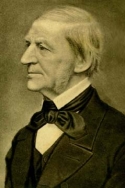Prophetic/Apostolic Revelation
Revelation through Prophets and Apostles
As can be inferred from the writings of biblical prophets and apostles cited above, there is substantial biblical support for the Mormon concept of God’s plan, including the pre-mortal existence, the purpose of this life, and man’s potential for eternal progression. A few important points, however, are worth mentioning.
- First, while most of the Bible is beautiful in its simplicity, Mormons are not alone in believing that the holy text nevertheless contains many apparent contradictions, difficult-to-understand passages, and ambiguous teachings that afford multiple interpretations. Contrary to the opinions of some, it is often impossible to know the correct meaning of some biblical passages by appealing to the Bible alone. Mormons recognize that often multiple views have biblical support, depending on how the words of ancient prophets and apostles are interpreted.
- Second, while biblical prophets and apostles explicitly support the Mormon view of God’s plan in many instances and strongly imply its accuracy in others, many of the details of the Mormon view cannot be found in the Bible.
But if the writings of biblical prophets and apostles afford multiple interpretations, how can we know that the “Mormon interpretation” is correct? If some of the details of the plan are not contained in the Bible, where did they come from? Mormons believe that the answer to both of these questions is “modern revelation through modern prophets and apostles.”

Ralph Waldo Emerson
The modern revelation for which Emerson longed does exist today. Just as God communicated with prophets and apostles anciently, so does He communicate with them in modern times. Mormons believe that, in revealing new truths, God follows the same pattern He did in biblical times. Specifically,
- God chooses individuals–prophets and apostles–to act as His spokesmen.
- After communicating with God, prophets and apostles declare His will, often in the form of written records. The Bible, created by ancient prophets and apostles, is an example of such a written record. Mormons believe that by way of divine communication, God can clarify previous teachings, reveal new ones, and give His children new instructions as needed.
- When people hear or read the words of God as given through His prophets and apostles, the Holy Ghost (described above) can testify to each individual that they are true.
- With this confirmation, men and women are encouraged to accept and follow.
Thus Mormons consider the Bible to be an important, but not a unique, source of truth. In addition to this ancient record of God’s will revealed to prophets and apostles, Mormons believe that God continues to speak to His children today through modern prophets and apostles. It is through this process of modern-day revelation that much of God’s plan has been revealed, and it is through this revelation that scripture can be correctly interpreted. ()

Joseph Smith


If any of you lack wisdom, let him ask of God, that giveth to all men liberally, and upbraideth not; and it shall be given him.

On a spring day in 1820, Joseph went to a grove of trees near his home to ask God which religion he should join. It was the first time he had prayed vocally.
If anyone needed wisdom, Joseph did. He decided to put James’ promise to the test. Mormons believe that on a spring day in 1820 Joseph went to a grove of trees near his home to ask God which religion he should join. It was the first time he had prayed vocally. In his own words, Joseph described what happened next:
I saw a pillar of light exactly over my head, above the brightness of the sun, which descended gradually until it fell upon me…When the light rested upon me I saw two Personages, whose brightness and glory defy all description, standing above me in the air. One of them spake unto me, calling me by name and said, pointing to the other: This is My Beloved Son. Hear Him! (Joseph Smith History 1:16)

One Response to “Mormon Prophets and Apostles”